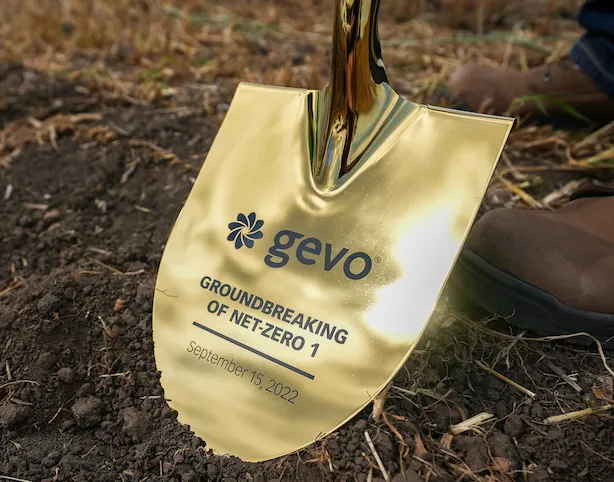Gevo’s Net-Zero 1 project finance dilemma

Gevo’s analyst call last week shows that the company has a serious financing issue with its flagship Net-Zero 1 Sustainable Aviation Fuel (SAF) project in South Dakota. It is finding it hard to choose between offers.
The company’s Net Zero 1 project aims to take sustainably-sourced corn from local farmers. They will convert some to alcohol for SAF, but other parts of the kernel will be used to produce protein products and corn oil. Electricity comes from a dedicated wind farm built by Zero6 Energy (formerly Juhl Energy), which also powers a green hydrogen plant.
Gevo aims to start SAF production in 2025. It broke ground on the site in September 2022 and is negotiating engineering, procurement, and construction (EPC) contracts now. It will start producing ethanol first so it has guaranteed feedstock when it starts Alcohol-to-Jet production.
Because Gevo has $405m in liquidity (and another $77m of cash soon to be released) it can start construction before it finalises the EPC contracts or financing.
“We’re lucky in this case. We will begin purchasing certain long lead equipment for Net Zero 1 in the coming months, and we have already advanced funds to support the wind project development and the hydrogen plant development, including some wind turbine and hydrogen electrolyser purchases and money to support development and long leads for our electricity service,” says Dr Patrick Gruber, CEO, Gevo.
At the same time, Gevo is still deciding on who it will work with financing Net Zero 1.
Guggenheim and Citigroup are sourcing the equity investment with Nomura Greentech and Citigroup arranging debt. Gruber says they have had strong interest from investors – with some looking at both equity and debt. He says that several investors are conducting due diligence and they have started drafting term sheets.
At the same time as talking to commercial lenders, Gevo is optimistic that the Department of Energy (DoE) may provide cheaper debt. “We have submitted part two of the application for the DoE loan guarantee process. DoE appears to be very supportive,” says Gruber. “We need to work through that process along with the process that would secure commercial debt. We’re running these things in parallel. The DoE timeline is expected to take incrementally longer than a commercial debt process, but it potentially increases the equity distributions of the product and the overall profitability.”
Gevo is also investing in its Net Zero 2 project near to Chicago. Net Zero 2 will be three times larger than the first project. Gevo’s technology partner Axens has also mentioned a Net Zero 3 project. “The details of the third project are still confidential,” said Gruber. “I confirm there is one, but it’s confidential.”
Gruber says that some equity investors have said they are interested in developing several projects with Gevo.
“It’s obvious to everybody that Gevo doesn’t have the balance sheet to build all these plants by itself. We plan on raising money at a project level,” said Gruber. “Gevo will play the role of project originator, developer and investor in these projects. As such, we’d expect to recycle capital from project-to-project.”
While this is a great time to raise capital, Gevo’s team knows that markets can change. Like their feedstock suppliers, they are keen to make hay when the sun is shining.
Subscribe to our free newsletter
For more opinions from SAF Investor, subscribe to our email newsletter.
